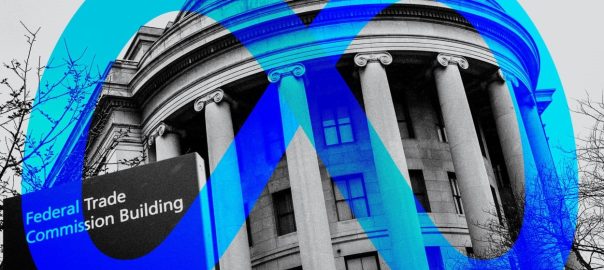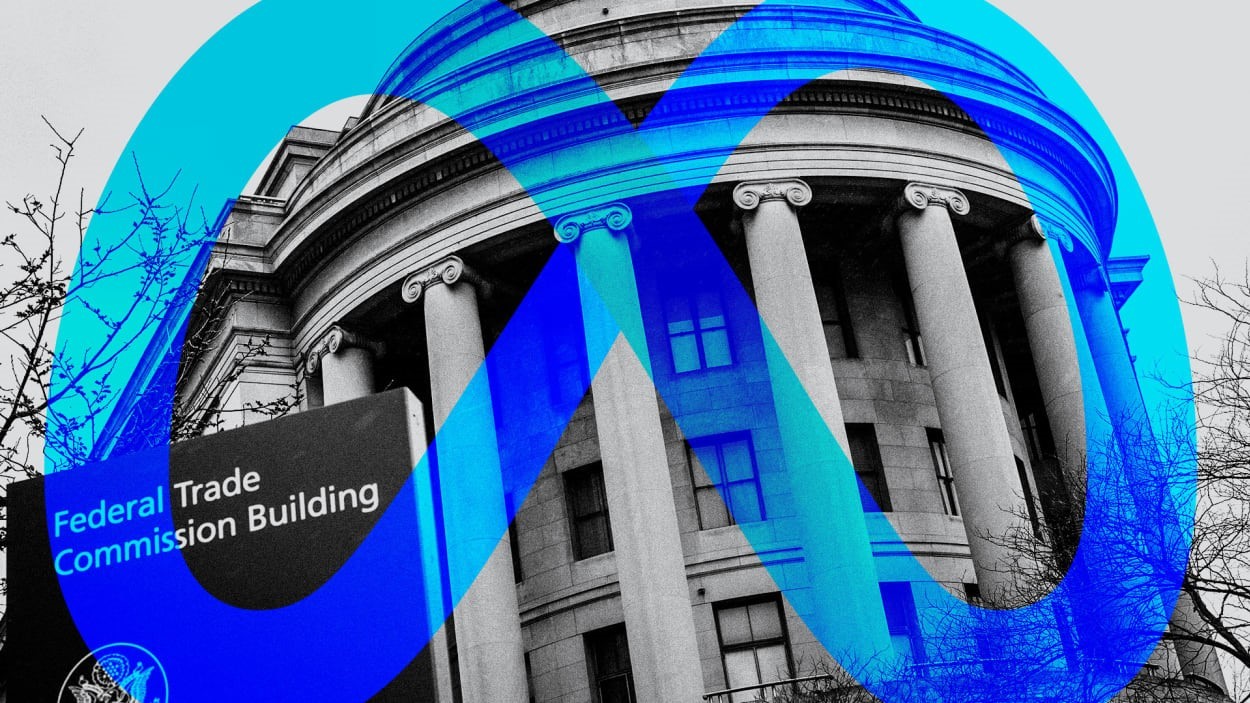The Federal Trade Commission (FTC) has been behind some of the most eye-watering fines and censures of big tech companies in the last few years. But now arguably the biggest big tech company of them all is seeking to get its own back—by petitioning a court to declare the FTC is unconstitutional.
In May 2023, the FTC sought to strengthen a privacy order Meta signed with the regulator in 2020 that would block the tech company from making money off its younger users. As part of the order, Meta was required to pay $5 billion for violating a prior agreement.
The FTC wanted to make the agreement weightier earlier this year because it felt that the tech company had failed to fully comply with the order. “Facebook has repeatedly violated its privacy promises,” Samuel Levine, director of the FTC’s Bureau of Consumer Protection, said at the time. “The company’s recklessness has put young users at risk, and Facebook needs to answer for its failures.”
However, Meta has claimed in a D.C. appeals court that attempting to unilaterally strengthen the agreement is unconstitutional—with the tech company claiming “the Commission has a dual role as prosecutor and judge in violation of the Due Process Clause.” And in turn, they want the court to agree with them, saying that the FTC’s attempts to strengthen that privacy order is unconstitutional overreach.
At first glance, it looks like a dodgy deal from a company that has been—often rightly—much maligned for its actions. This week the Wall Street Journal reported that Meta’s apps can allegedly direct adult users seeking out risqué content involving children to more of that type of content—to the concern of agencies like the FTC. But dig deeper and there’s nuance, argue legal scholars.
“This lawsuit is a natural consequence of the Supreme Court allowing companies to bring constitutional structural challenges before the agency has issued a final judgment on the merits and the Court’s increasing constitutional skepticism of independent agencies and agency adjudication,” says Chris Walker, professor of law at the University of Michigan. “In light of those developments, I don’t view Meta’s lawsuit as a new low or anything like that. This is just lawyers following the law and hints from the Court on how to effectively challenge agency action.”
Some believe it’s a bold gambit nonetheless. “I see it as a high-risk move by Facebook to try to delay regulatory storms for its business, which depends on young people and mining their data and activities,” says Jason Kint, chief executive of Digital Context Next, a digital industry trade association. Kint believes it’s high-risk because it “involves the terms of its most sensitive—and expensive—settlements ‘handled’ by its board and CEO still playing out in other courtrooms years later.”
But it’s a gamble that could pay off, suggest legal experts. “It’s a potentially valid argument they have to defend themselves against FTC litigation,” says Gus Hurwitz, senior fellow and academic director specializing in tech competition and innovation at the University of Pennsylvania Carey Law School. “They’re being sued, they want to win. You can win on the substance, or you can win procedurally. When you’re a lawyer defending your client, it doesn’t matter how you win. It’s pretty superficial to call this a low blow.”
Some have criticized Meta’s legal tactic. But while Hurwitz is wary of psychoanalyzing what he calls the “Twitter commentariat,” he says that Meta could have a point—both with the bald facts of the case and also because of the broader implications. “The reality is, we need people to bring these sorts of arguments in order to shape and develop the law,” he says.
“Fundamentally, I think it comes down to the use of the role of government, government authority, and government power,” says Hurwitz. Some say it’s obvious that companies like Meta should be regulated by the FTC. Others argue that agencies like the FTC have too broad a remit and shouldn’t be allowed to act without direct oversight from Congress. “The reality is probably somewhere in between: that there is some reasonable amount of authority for the FTC to have,” says Hurwitz. “We’re in a new and still new and complicated legal setting. And it’s unclear what Congress intended. It’s unclear what the boundaries are. And those are questions for the courts or Congress ultimately to resolve. And that’s what this case is going to be about.”
Hurwitz points out that these are not FTC-specific issues. Just (December 21, 2023), the Supreme Court heard arguments in the SEC v. Jarkesy case, which involves some of the exact same claims Meta is including in the FTC. In that case, someone was arguing that the SEC has an unconstitutional structure, just as Meta is arguing here. Over the past few years, there have been cases involving the EPA, FCC, and others.
And it’s a worthy case to argue, says Neil Chilson, who, until 2018, was chief technologist at the FTC, advising how the FTC should regulate tech. Chilson says, “the FTC’s overreach in this specific case demonstrates serious problems with the agency’s structure.”
The FTC declined to comment. A Meta spokesperson said: “The FTC’s unilateral attempt to rewrite our privacy settlement agreement raises serious and important issues about the FTC’s constitutional authority and Meta’s due process rights. Monday’s ruling did not reach those issues and the Judge suggested that Meta raise them in a separate suit. The FTC shouldn’t be the prosecutor, judge, and jury in the same case.”
“The FTC’s procedural approach to this case highlights the problems of having the commissioners as both prosecutor and judge in such cases,” says Chilson. He also worries it’s an own-goal. “A less reckless FTC might have avoided facing this issue, which could have huge ramifications for all future FTC enforcement.”
(1)






